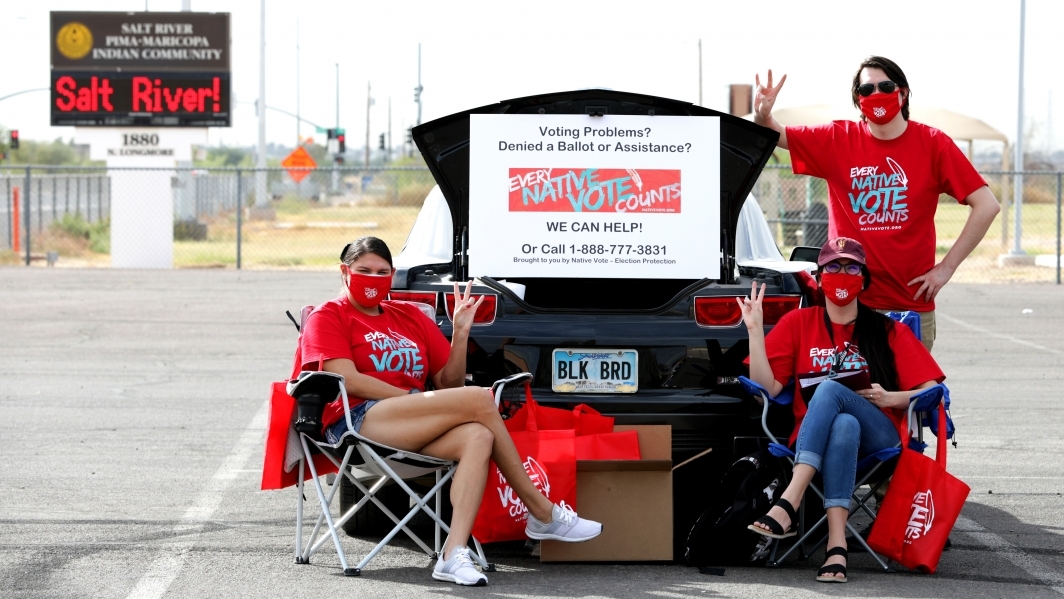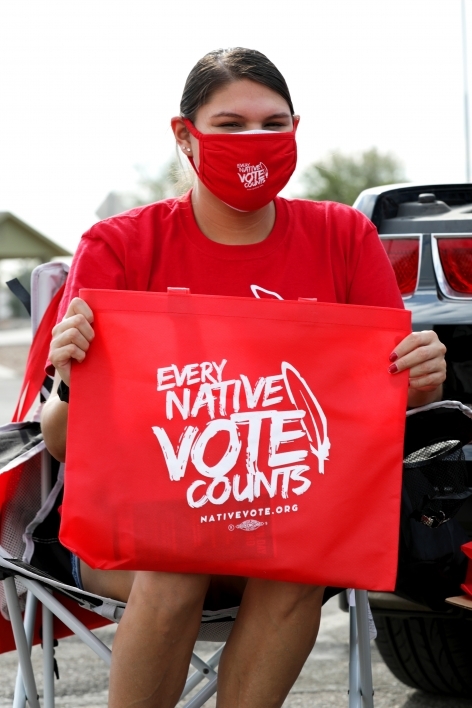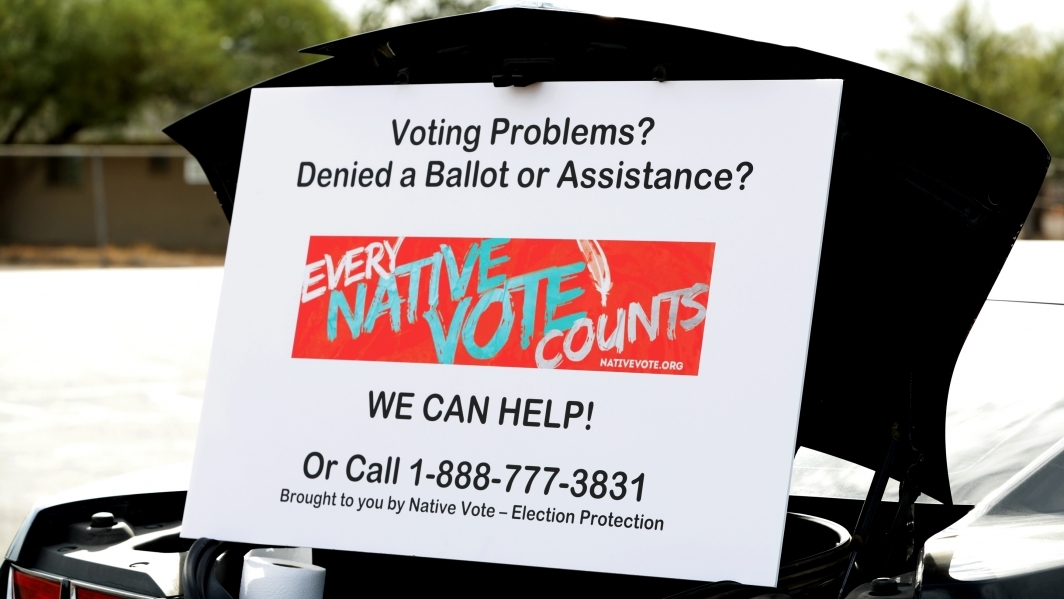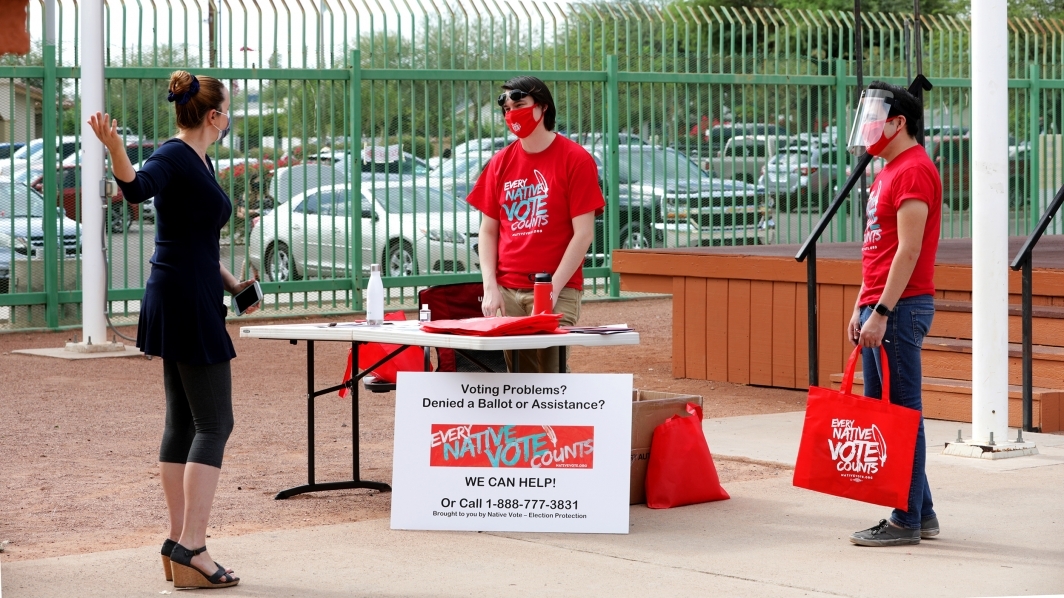ASU Law Indian Legal Program helps Native American communities get out the vote
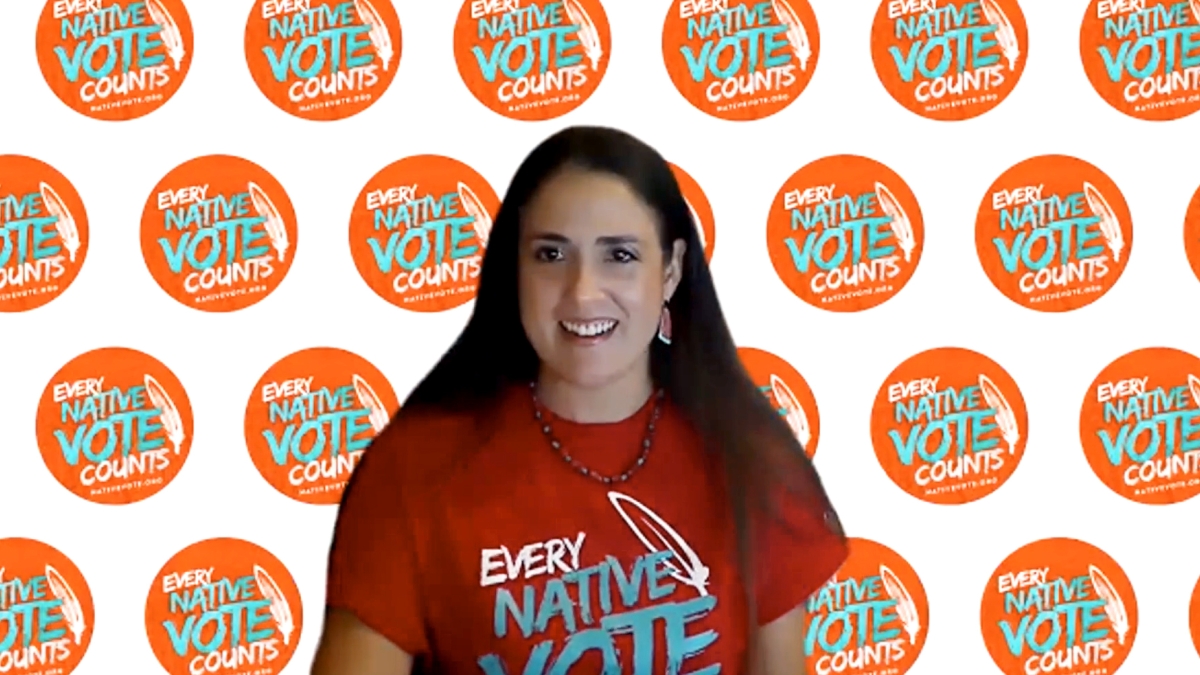
ASU Law Professor Patty Ferguson-Bohnee, faculty director of the Indian Legal Program and director of the Indian Legal Clinic, hosts a webinar celebrating the Native American right to vote.
Election Day is here and the Indian Legal Clinic at the Sandra Day O’Connor College of Law at Arizona State University is out in full force continuing its efforts to ensure Arizona’s tribal communities and tribal members have access to the polls.
Leading the Arizona Native Vote Election Protection Project, in partnership with the Inter Tribal Council of Arizona, the National Congress of American Indians, and the Native American Bar Association of Arizona, the clinic has been providing multiple resources leading up to today’s general election.
The tools include a dedicated website, an “incident command center hotline” to answer voter questions, an interactive map to help voters find their polling locations, and student-led training and organization of approximately 100 volunteers manning polling locations. The hotline, 1-888-777-3831, is available if voters are experiencing any problems or have questions.
ASU Law Professor Patty Ferguson-Bohnee, faculty director of the Indian Legal Program and director of the Indian Legal Clinic, has been leading the initiative and development of resources since 2008, including the addition of Torey Dolan as the the clinic's first-ever Native Vote Fellow. Dolan was brought on board last year in anticipation of this election and helped to create the voting map. The Indian Legal Clinic organized a webinar on National Voter Registration Day in September to celebrate the Native American right to vote.
Video by ASU Law
Despite the Indian Citizenship Act of 1924, Native Americans in Arizona were denied the right to vote until 1948, and state law continued to deny voting opportunities for Native Americans through laws, policies and practices until 1970. Ferguson-Bohnee was joined in the webinar by Maria Dadgar, executive director of the Inter Tribal Council of Arizona; Gov. Stephen Roe Lewis of the Gila River Indian Community; and Derrick Beetso, general counsel for the National Congress of American Indians. The panel discussed the history of Native Americans’ fight to win the right to vote in Arizona and why it is important to register and vote today.
In a recent Time magazine interview, Ferguson-Bohnee said, “It’s not just voting but also voter registration that is difficult this year for Native Americans, many of whom register in person because they lack good internet access,” and many Native people lack a formal address and official identification, which complicates things further.
“It’s not their fault they don’t have a standard address or have no need for a state ID — that’s a huge issue which disproportionately impacts native people and their ability to register and participate in the election,” she said.
Navajo Nation Attorney General Doreen McPaul also was referenced in the Time article. McPaul, a 2001 ASU Indian Legal Program alum, testified before Congress in February, saying that about 70 of the Navajo Nation’s 110 chapters “do not have street names or numbered addresses, which adds up to at least 50,000 unmarked properties.”
Ferguson-Bohnee was instrumental in organizing ASU Indian Legal Program students in a call for volunteers to serve at polling locations in Indian country. Students held a virtual training with the volunteers who will be assisting at 58 polling places.
If you experience difficulty voting on Election Day or have questions about voting, call the hotline at 1-888-777-3831. For more information, contact the Indian Legal Clinic at 480-727-0420 or at indianlegalclinic@asu.edu.
More Law, journalism and politics
Can elections results be counted quickly yet reliably?
Election results that are released as quickly as the public demands but are reliable enough to earn wide acceptance may not…
Spring break trip to Hawaiʻi provides insight into Indigenous law
A group of Arizona State University law students spent a week in Hawaiʻi for spring break. And while they did take in some of the…

LA journalists and officials gather to connect and salute fire coverage
Recognition of Los Angeles-area media coverage of the region’s January wildfires was the primary message as hundreds gathered at…


